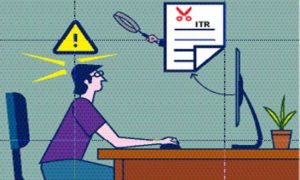While filing one’s Income Tax Return (ITR) one needs to mention all its sources of income including stock market investments. According to tax and investment experts, there are two set of income tax forms for stock market investors. If a taxpayer has investments in cash segment, then he or she will have to file ITR-2 Form while for a derivative segment investor or aggressive intraday traders, ITR-3 Form will be the ideal one. Experts went on to add that like two ITR forms, there are two types of taxes levied on the stock market investor, which depends upon the period of shareholding of the taxpayer.
Speaking on the reason for two types of ITR Forms for stock market investors Pankaj Mathpal, MD at Optima Money Managers said, “If an investor has investments in cash segment then the taxpayer will have to file ITR-2 Form. But, in case, the taxpayer is an intraday trader, then he or she will have to file ITR-3 Form. In fact, if the taxpayer has stock investments in the derivative market, in that case too, ITR-3 Form will be applicable.”
On difference in ITR-2 and ITR-3 Forms Pankaj Mathpal of Optima Money Managers said that ITR-3 Form allows the taxpayer to adjust one’s paid up capital for trading like electricity bill, rent of the house used for trading purpose, etc. He said that if a taxpayer is an intraday trader then the stock investments are considered its business and in that case, the investment on business becomes deductible from the income coming from the business.
On how does the ITR-2 form works Manikaran Singhal, Founder at goodmoneying.com said, “For stock market investors who have investment in cash segment, there are two types of income tax being levied — Short Term Capital Gain (STCG) and Long Term Capital gain (LTCG). If the stock holding is for less than 12 month, then STCG will be levied on the stock market investor, which is 15 per cent of the net income. However, for LTCG, the taxpayer will be levied 10 per cent of its income beyond ₹1 lakh in single financial year.” Singhal said that if the taxpayer has incurred loss from its investment in stock market, the income tax department allows him or her to carry forward the loss for the next 8 years. He said that this carry forward of loss for 8 years is applicable irrespective of the fact whether the LTCG or STCG is being applied on the taxpayer.



































